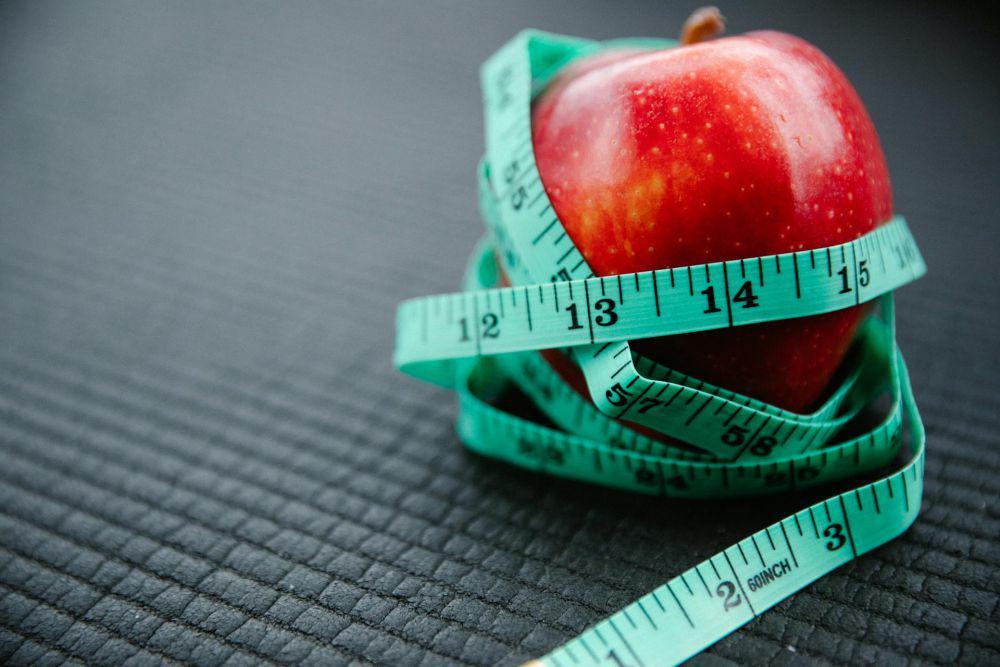ilustrasi tidur (pexels.com/Polina Kovaleva)
Menilik jurnal Nature and science of sleep di 2018, perempuan yang mengalami PCOS lebih berisiko mengalami gangguan tidur seperti insomnia, sleep apnea, hingga mudah mengantuk di siang hari.
Padahal kekurangan tidur bisa meningkatkan level hormon ghrelin dan kortisol yang membuatmu lebih mudah lapar (Journal of obesity & metabolic syndrome, 2018). Sehingga berat badanmu akan mudah naik jika kekurangan tidur.
Sedangkan, olahraga yang teratur akan membantu tubuh meningkatkan sensitivitas insulin dan komposisi tubuh penderita PCOS. Dengan tubuh yang lebih sensitif terhadap hormon insulin, kamu akan lebih mudah menurunkan berat badan (Sports medicine, 2014).
Jika kamu sedang mengalami PCOS dan memiliki berat badan berlebih, menurunkan berat badan akan menjadi game changer untukmu. Sekecil apapun penurunan berat badan, akan membantu kondisimu membaik. Meskipun sulit, bukan berarti tidak bisa.
Dengan menerapkan beberapa cara ini, semoga bisa membantumu memuluskan jalan dalam menurunkan berat badan. Kamu bisa menurunkan berat badan secara sehat dan tidak menyiksa bagi penderita PCOS dengan mengikuti tips yang sudah diberikan.
Referensi
Barber, T. M., Hanson, P., Weickert, M. O., & Franks, S. (2019). Obesity and Polycystic Ovary Syndrome: Implications for Pathogenesis and Novel Management Strategies. Clinical medicine insights. Reproductive health, 13.
Rasool, S. U. A., Ashraf, S., Nabi, M., Rashid, F., Fazili, K. M., & Amin, S. (2019). Elevated fasting insulin is associated with cardiovascular and metabolic risk in women with polycystic ovary syndrome. Diabetes & metabolic syndrome, 13(3), 2098–2105.
Basturk, B., Koc Ozerson, Z., & Yuksel, A. (2021). Evaluation of the Effect of Macronutrients Combination on Blood Sugar Levels in Healthy Individuals. Iranian journal of public health, 50(2), 280–287.
Moon, J., & Koh, G. (2020). Clinical Evidence and Mechanisms of High-Protein Diet-Induced Weight Loss. Journal of obesity & metabolic syndrome, 29(3), 166–173.
Cutler, D. A., Pride, S. M., & Cheung, A. P. (2019). Low intakes of dietary fiber and magnesium are associated with insulin resistance and hyperandrogenism in polycystic ovary syndrome: A cohort study. Food science & nutrition, 7(4), 1426–1437.
Weickert, M. O., & Pfeiffer, A. F. H. (2018). Impact of Dietary Fiber Consumption on Insulin Resistance and the Prevention of Type 2 Diabetes. The Journal of nutrition, 148(1), 7–12.
Cook, L. T., O'Reilly, G. A., Goran, M. I., Weigensberg, M. J., Spruijt-Metz, D., & Davis, J. N. (2014). Vegetable consumption is linked to decreased visceral and liver fat and improved insulin resistance in overweight Latino youth. Journal of the Academy of Nutrition and Dietetics, 114(11), 1776–1783.
Lee, I., Cooney, L. G., Saini, S., Sammel, M. D., Allison, K. C., & Dokras, A. (2019). Increased odds of disordered eating in polycystic ovary syndrome: a systematic review and meta-analysis. Eating and weight disorders : EWD, 24(5), 787–797.
Ding, C., Lim, L. L., Xu, L., & Kong, A. P. S. (2018). Sleep and Obesity. Journal of obesity & metabolic syndrome, 27(1), 4–24.
Fernandez, R. C., Moore, V. M., Van Ryswyk, E. M., Varcoe, T. J., Rodgers, R. J., March, W. A., Moran, L. J., Avery, J. C., McEvoy, R. D., & Davies, M. J. (2018). Sleep disturbances in women with polycystic ovary syndrome: prevalence, pathophysiology, impact and management strategies. Nature and science of sleep, 10, 45–64.
Cheema, B. S., Vizza, L., & Swaraj, S. (2014). Progressive resistance training in polycystic ovary syndrome: can pumping iron improve clinical outcomes?. Sports medicine (Auckland, N.Z.), 44(9), 1197–1207.
